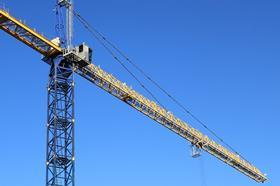At a glance - the likely impact on labour, materials and investment

Britain has voted to leave the European Union, a decision which will define the country’s future for decades.
Construction, more than most industries in the UK, will be profoundly affected by the result of the referendum.
Both consultants and contractors have been reliant on skilled EU labour for years to plug gaps created by a shrinking domestic talent pool.
While for the commercial sector in London, firms in the industry have enjoyed the benefits of investment from overseas clients who see the UK as a gateway to the rest of Europe.
But now we’re heading out of the European Union, here’s what the vote means for construction:
Labour
Now we have a Brexit, it’s expected that Britain will leave the single market, which will end freedom of movement for workers across the European Union. In the UK, government figures show nearly 12% of the industry’s 2.1m workers come from abroad– mainly from the EU. According to the CIOB, the industry will need to find an additional 224,000 new recruits by 2019 to meet the overall pipeline of work.
It’s important to note that nothing will change in the short-term, but all indications suggest the skills shortage will now get worse. That will push up wages. A recent survey showed wages for bricklayers working in London have hit £25 an hour due to the current skills shortage, and before the referendum analysts predicted wages would rise further if Britain voted to leave.
Materials
Meanwhile, the value of the pound has fallen dramatically, at one stage hitting $1.33, a fall of more than 10% and a low not seen since 1985. Experts predict it could fall further in the coming days and weeks. For an industry which imports 64% of its materials from the EU, a lot of contractors will see a significant rise in material costs in addition to upward pressure on workers’ wages.
Investment
Most analysts are predicting that investment will drop markedly now we have left the EU, especially in the commercial construction sector. There was talk of a “Remain dividend” if Britain voted to remain, whereby investors would give the green light to a flood of commercial projects which were previously on hold. But with such uncertainty now surrounding the economy, certainly European investors are likely to be put off.
However some experts have pointed out that a Brexit could now provide a significant opportunity for inward investment from the US and Asia, with the fall in sterling making investment in the commercial and residential sectors more attractive for non-EU buyers.
Sustainability
Since the zero carbon home target for 2016 was finally scrapped in the Housing and Planning Bill in May, the main regulation driving the zero carbon agenda was the EU’s Energy Performance of ��ɫ����TVs Directive (EPBD), which requires all new buildings in the EU must be “nearly zero energy” by 31 December 2020.
Speaking to ��ɫ����TV last month, energy minister Andrea Leadsom - a high-profile Leave campaigner - defended the government’s decision to scrap zero carbon homes, citing the EU directive.
While the UK will no longer be bound by the EU’s targets for “nearly zero energy” buildings by 2021, the fact Leadsom chose to mention those targets could mean the UK keeps the regulation as it begins the very lengthy process of deciding which EU regulation it will keep, amend or ditch.




























1 Readers' comment